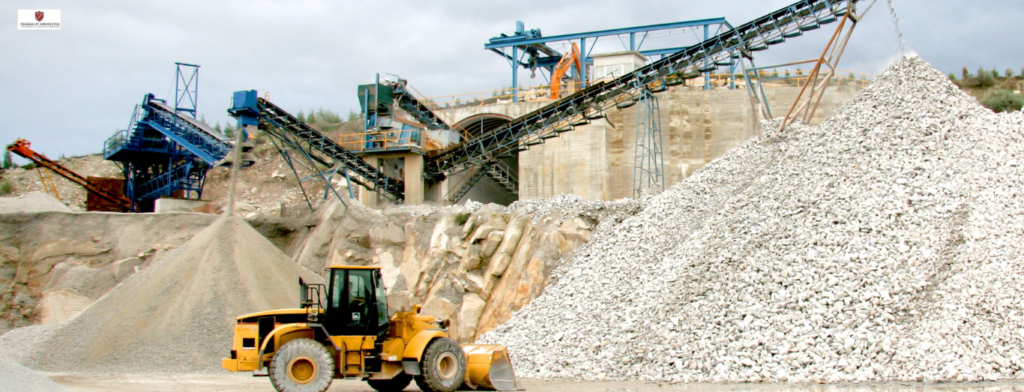Whether you operate a quarry, run a gravel pit, or supply ready-mix concrete, your business is closely tied to compliance, environmental responsibility, and dependable material delivery. There are two types of surety bonds, reclamation bonds and supply bonds. They are essential tools that protect your operations, support project financing, and build trust with your partners. Our latest expert blog article explores how reclamation bonds and supply bonds work, why they matter to aggregate and construction material companies, and how they fit into your long-term business strategy.
What are Reclamation Bonds?
Reclamation bonds are typically required by provincial regulators when companies extract resources such as sand, gravel, stone, or clay. Reclamation bonds ensure that once extraction activities are complete, the site will be rehabilitated according to environmental and land-use standards.
For quarry and pit operators, reclamation obligations are not optional. Regulators demand financial security before granting permits. A reclamation bond provides that security, guaranteeing that the land will be restored—even if the operator is unable or unwilling to complete the work.
Without a bond, operators would need to tie up significant cash or post letters of credit, which can strain capital reserves. A surety bond shifts that requirement, freeing up liquidity while still satisfying regulatory obligations.
Why Reclamation Bonds Matter for Aggregate Producers
For aggregate producers, reclamation is a condition for maintaining long-term access to permits, ensuring community trust, and protecting future business opportunities.
A properly structured reclamation bond:
- Protects capital by replacing letters of credit or cash deposits.
- Demonstrates compliance with environmental regulations, which is critical for maintaining good standing.
- Supports growth by allowing operators to expand pits or open new sites without tying up funds in security deposits.
Whether you run a small gravel pit or a large-scale quarry operation, a reclamation bond is an efficient financial tool that supports both compliance and expansion.
What is a Supply Bond?
Supply bonds guarantee that materials such as aggregates, stone, sand, or concrete will be delivered according to contract terms. If the supplier fails to deliver, the bond ensures the buyer can recover costs or secure replacement materials without financial loss.
In practice, supply bonds are frequently required on public works and infrastructure projects. Roadbuilding contractors, municipalities, and developers often demand them when sourcing bulk aggregate. For aggregate companies, this bond is a way to secure contracts and prove reliability in a competitive market.
Why Supply Bonds Matter for Material Suppliers
Material shortages, transportation delays, or business insolvency can disrupt critical projects. Supply bonds protect project owners from these risks and, at the same time, elevate the supplier’s credibility.
For aggregate producers, a supply bond, like so many contract surety bonds:
- Builds trust with contractors and municipalities by guaranteeing delivery.
- Creates opportunities to bid on larger projects that require bonded suppliers.
- Reinforces reputation as a reliable partner in industries where delays can cost millions.
By carrying a supply bond, your company signals to clients that you have the financial backing and surety support to deliver consistently, regardless of challenges.
Summary of Reclamation Bonds and Supply Bonds
In the aggregate industry, risk management goes beyond equipment and operations. Regulators expect rehabilitation commitments, and contractors demand reliable material supply. Reclamation bonds meet the first challenge by securing permits and freeing capital, while supply bonds meet the second by ensuring performance and opening doors to new contracts.
Together, these tools provide more than compliance: they build financial flexibility, strengthen market credibility, and position your company for growth. For producers, suppliers, and haulers alike, reclamation and supply bonds are not simply requirements, they are strategic assets that help keep projects moving and businesses competitive.
For more information about surety, please check out our surety page.


